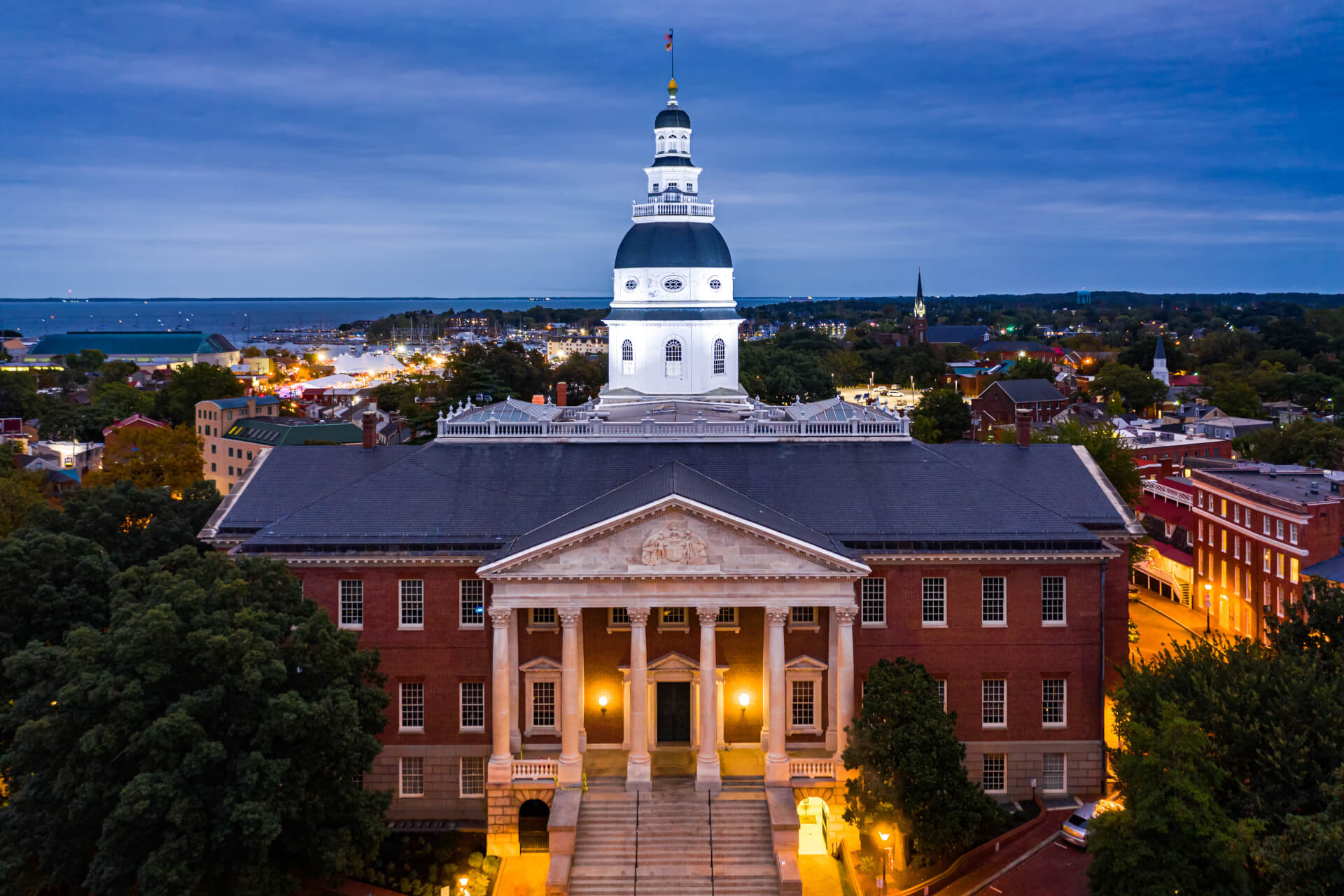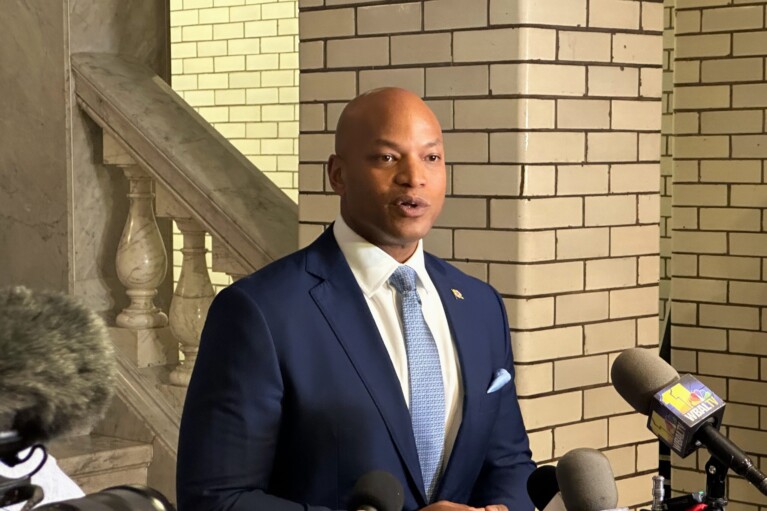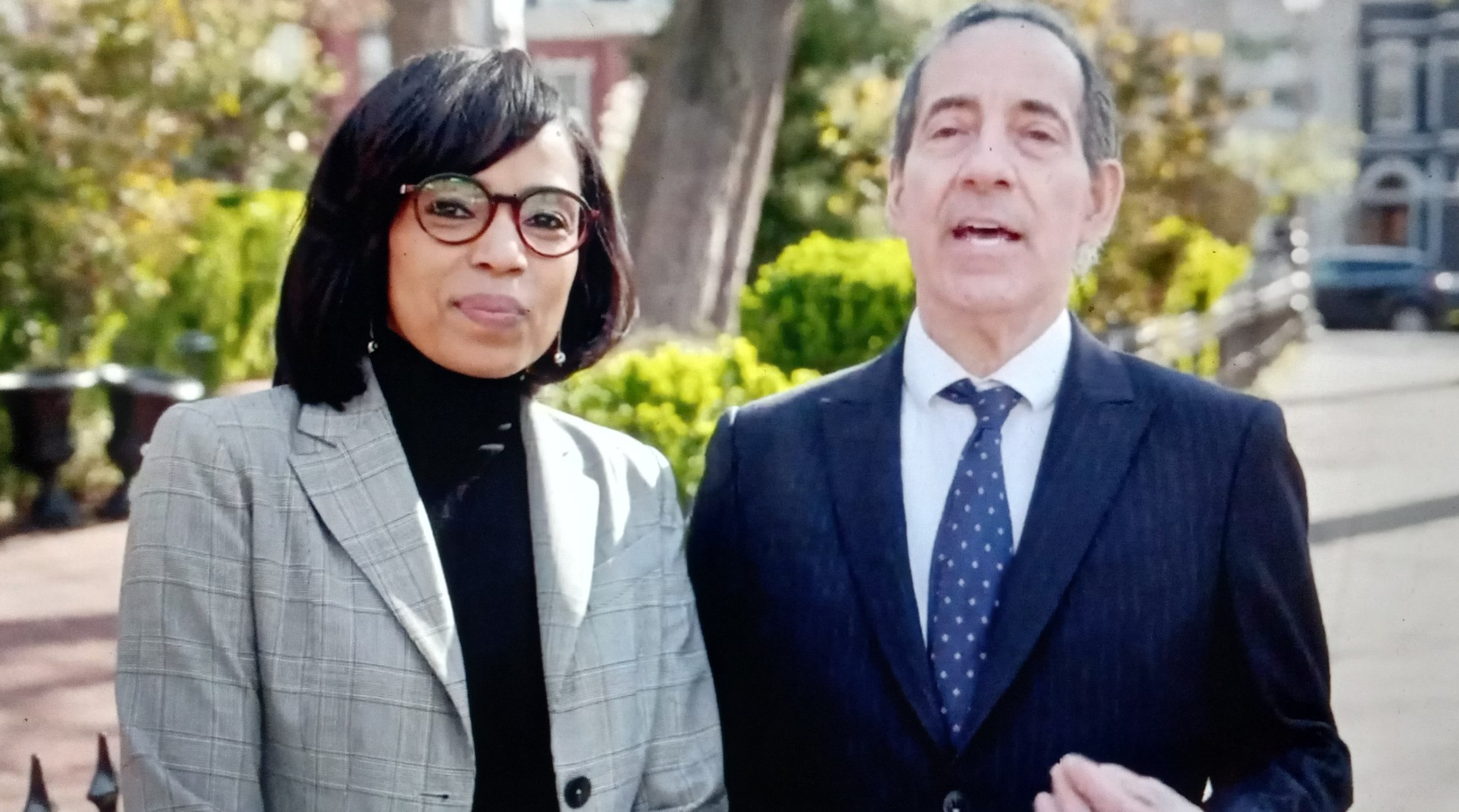Proposed Constitutional Amendment Would Set Up Statewide Elected Watchdog

A proposed constitutional amendment to add a new elected watchdog to the state government got its first airing in the House Health and Government Operations Committee on Tuesday.
House Bill 152, introduced by Del. Vaughn M. Stewart (D-Montgomery) would amend the state constitution to set up a “public advocate” elected office in Maryland. That public advocate would serve as a statewide ombudsman to “receive, respond to, and investigate ethics complaints” against state officials.
The public advocate would also become governor if both the governor and lieutenant governor seats are vacant at the same time. In addition to reviewing ethics complaints against state officials, the public advocate would also look at new ways to boost public awareness and participation in government including “technology-enabled civic engagement, digital citizen complaint and comment tools, citizen assemblies, government modernization, and streamlining,” according to the bill.
“If the pandemic has taught us anything, it’s that government effectiveness is a life-or-death issue,” Stewart said.
Stewart said the public advocate would seek to give Marylanders a more powerful voice in the state and that the position would “supercharge our state government’s agility, competence, transparency and fairness.”
Stewart also said a public advocate would have the “platform and the mandate” to combat racial bias and inequities in state government. He noted that New York City has had a public advocate position for decades.
Del. Nicholaus R. Kipke (R-Anne Arundel) pressed Stewart for examples of how New York City’s public advocate has made a difference there. Stewart responded that Public Advocate Jumaane D. Williams produced a study of how New York could improve its COVID-19 response after the city’s first wave of the disease early in the pandemic. The study included a slew of recommendations for how to improve responses to future waves.
Stewart noted that the public advocate also successfully lobbied to ban cigarette vending machines in the city in the 1990s. But Health and Government Operations Committee Chair Shane E. Pendergrass (D-Howard) said she once sponsored similar legislation in Maryland and questioned whether a public advocate would simply overlap with lawmakers’ duties.
“I’m puzzled by why you believe that we need someone else doing that job, when that’s kind of our job: oversight,” Pendergrass said.
Stewart noted that lawmakers aren’t in session year-round and said the public advocate would be able to produce reports and make recommendations during the interim.
Ethics complaints about state officials fall under the jurisdiction of the State Ethics Commission, a panel that was set up by the General Assembly in 1979 and oversees state ethics law. It consists of five members who are appointed to five-year terms by the governor, with one member nominated by the Senate President and another by the House Speaker.
Stewart’s proposal wouldn’t eliminate that panel. He said the public advocate would simply be “one more tool in the toolbox” for boosting transparency in state government.
Like other elected positions in state government, Stewart said that candidates for the position would have a party affiliation and would undergo primaries. Del. Sid Saab (R-Anne Arundel) questioned whether the position could be truly even-handed, given that candidates would have a party affiliation.
“I find it hard to be independent when you actually have to go through a primary election,” Saab said.
Stewart said Maryland’s comptroller is an example of how elected officials with party affiliations can be “independent callers of balls and strikes.”
His draft of the bill would put judges under the public advocate’s watchdog purview, alongside the legislative and executive branches of state government, but Stewart said he plans to remove that provision by amendment due to opposition from the Maryland Judicial Conference.
If Stewart’s constitutional amendment moves past a committee vote and is enacted by the General Assembly, the question of whether or not to create a statewide public advocate would fall to voters.
Open meetings changes needed?
Revisions to Maryland’s Open Meetings Act were also before the committee Tuesday.
House Bill 235, introduced by Dels. Alfred C. Carr Jr. (D-Montgomery) and Mary A. Lehman (D-Prince George’s) would limit the “administrative function” exclusions in Maryland’s Open Meetings Act. Under the bill, the “appointment, employment, assignment, promotion, discipline, demotion, compensation, removal, resignation, or performance evaluation of an appointee, employee, or official over whom the public body has direct jurisdiction” wouldn’t fall under that exclusion.
Public bodies could still go into closed session, Carr said. But the bill would “limit the appearance of secrecy” and create a public record that such a meeting occurred.
Rebecca Snyder, the executive director of the Maryland, Delaware and D.C. Press Association, said the bill would boost transparency because, although public bodies would still be able to discuss those matters in a closed session, they need to provide a reason for closing a public meeting.
“The public would be aware of the time and date and place,” Snyder said.
Carr said the state’s Open Meetings Compliance Board opposes the bill, arguing the legislation isn’t needed due to a lack of complaints. But he said the board declined his request to appear and explain their opposition.
House Bill 246, also introduced by Carr and Lehman, would increase the length of time public bodies like county councils and General Assembly committees need to keep copies of public meeting notices or written statements about closing public meetings from one to three years. It would also require that statements about closing public meetings be posted online to the extent practicable, and require public bodies to make those closing statements, meeting minutes or recordings publicly available within two business days after receiving a request.
D’Paul Nibber, the associate director for policy at the Maryland Association of Counties, said his organization supports the bill but asked that the deadline to release meeting minutes be changed to within 48 hours after those minutes are compiled rather than after receiving a request. He said minutes need to be compiled and approved, which can take time — especially for smaller public bodies with less resources.




 Creative Commons Attribution
Creative Commons Attribution